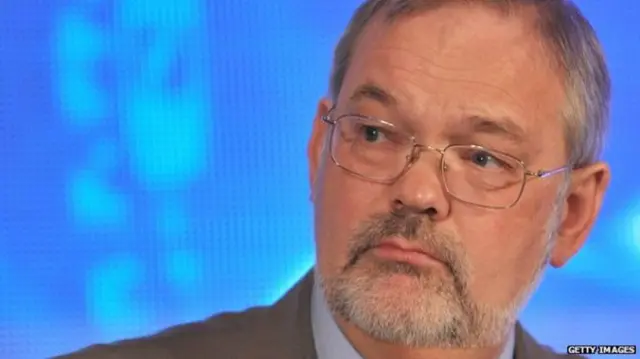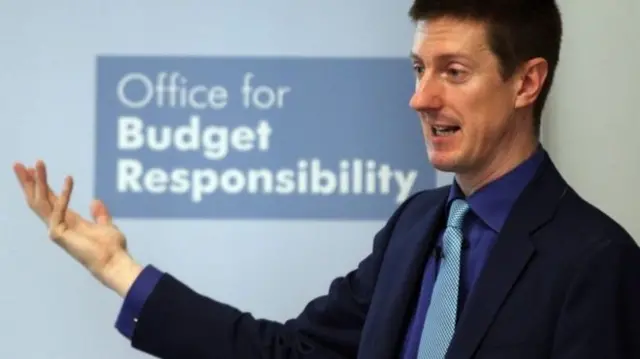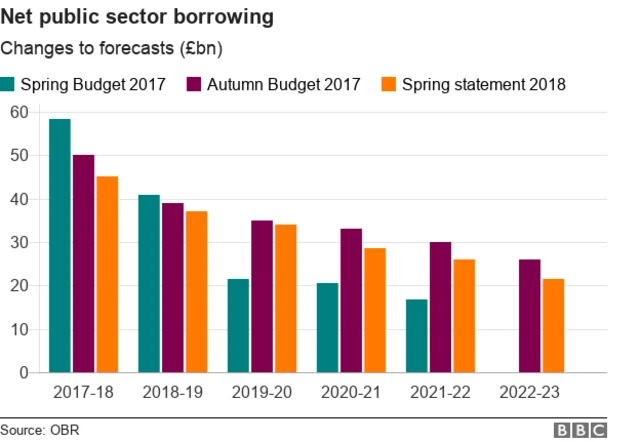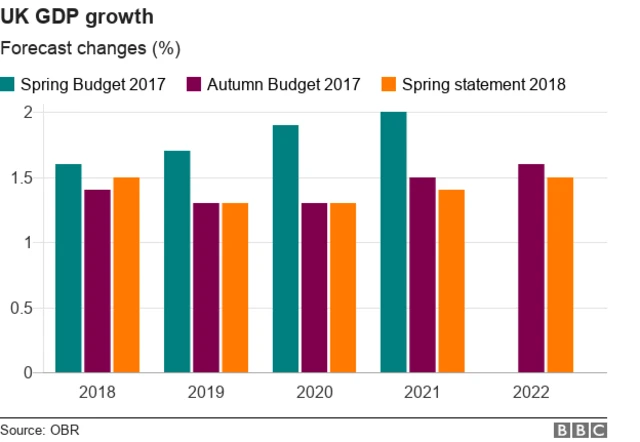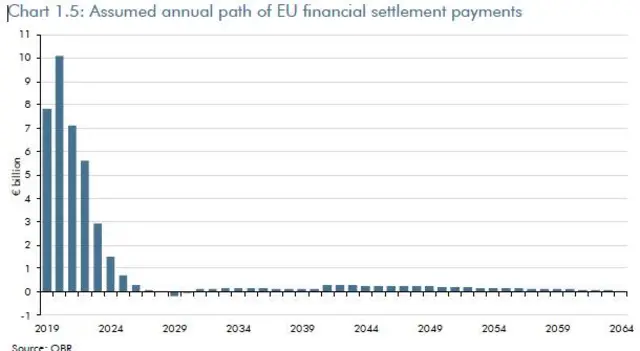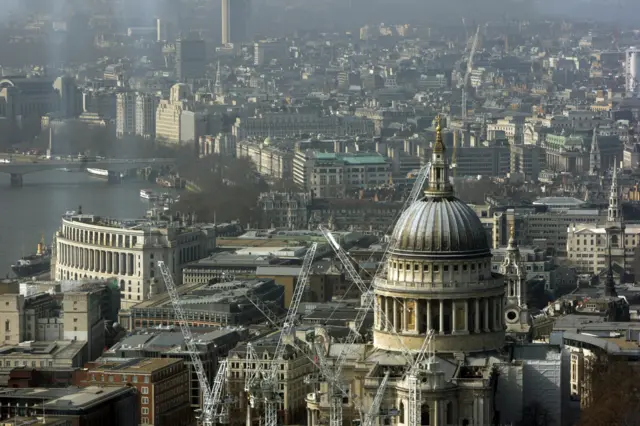What about wages?published at 17:11 GMT 13 March 2018
 Image source, Getty Images
Image source, Getty ImagesPhilip Hammond mentioned real wages beginning to grow again in early 2019.
The IFS are unpicking the numbers for the longer term.
Quote MessageDespite a very marginal upgrade to the forecast for earnings growth today, real average earnings are now expected to grow by just 3.5% over the next five years, meaning their level in 2022-23 would be similar to 2007-08."
Robert Joyce, Associate Director
And he adds that the freeze on working-age benefits means we're looking at "a further period of weak growth in the living standards of working age households."
